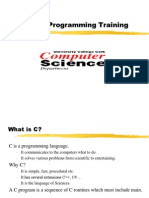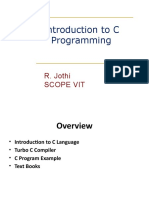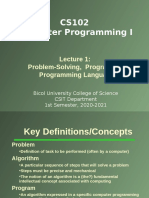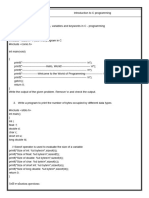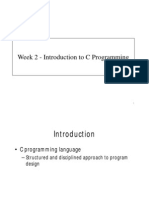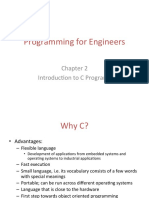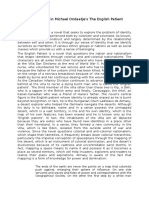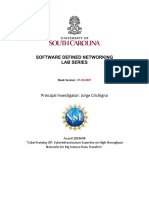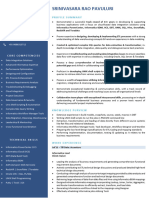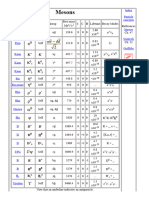0% found this document useful (0 votes)
5 views7 pagesC Language Enhanced Beginner Guide
C is a powerful general-purpose programming language developed in the 1970s, serving as a foundation for many modern languages. Learning C helps understand low-level computer operations and builds strong programming fundamentals. The document provides an overview of C's structure, data types, input/output functions, arithmetic operations, and tips for beginners.
Uploaded by
gaursunny843Copyright
© © All Rights Reserved
We take content rights seriously. If you suspect this is your content, claim it here.
Available Formats
Download as PDF, TXT or read online on Scribd
0% found this document useful (0 votes)
5 views7 pagesC Language Enhanced Beginner Guide
C is a powerful general-purpose programming language developed in the 1970s, serving as a foundation for many modern languages. Learning C helps understand low-level computer operations and builds strong programming fundamentals. The document provides an overview of C's structure, data types, input/output functions, arithmetic operations, and tips for beginners.
Uploaded by
gaursunny843Copyright
© © All Rights Reserved
We take content rights seriously. If you suspect this is your content, claim it here.
Available Formats
Download as PDF, TXT or read online on Scribd
/ 7




